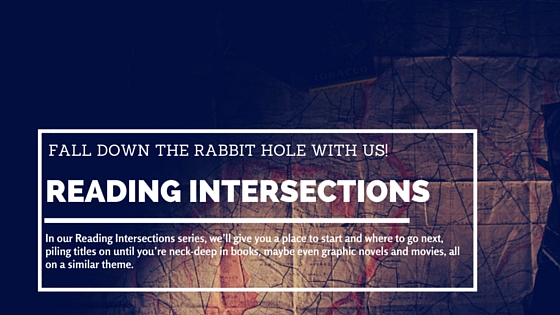 If you’re reading this in hopes of learning more about the city of Lowell, I’m sorry. It’s not that Lowell we’ll be taking a closer look at here. No, this Reading Intersections is all about Boston-born poet and prolific letter writer Robert Lowell. As I read through his letters to fellow poet and intimate friend Elizabeth Bishop, I wondered if his office floor had at any given time been strewn with crumpled up drafts–his letters show a mastery of language, an attention to the smallest, most poignant details of human behavior (including his own struggle with manic depression) and of art and so many other matters that it’s all but impossible to imagine he’d be able to capture such perception-shaking thoughts on the first try. As it turns out, his letters were “written on the fly, glancingly corrected” — that first try was more than enough.
If you’re reading this in hopes of learning more about the city of Lowell, I’m sorry. It’s not that Lowell we’ll be taking a closer look at here. No, this Reading Intersections is all about Boston-born poet and prolific letter writer Robert Lowell. As I read through his letters to fellow poet and intimate friend Elizabeth Bishop, I wondered if his office floor had at any given time been strewn with crumpled up drafts–his letters show a mastery of language, an attention to the smallest, most poignant details of human behavior (including his own struggle with manic depression) and of art and so many other matters that it’s all but impossible to imagine he’d be able to capture such perception-shaking thoughts on the first try. As it turns out, his letters were “written on the fly, glancingly corrected” — that first try was more than enough.
Start Here:
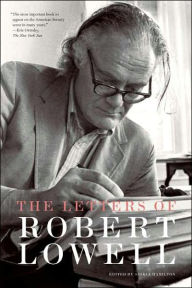 Edited by Saskia Hamilton. The Letters of Robert Lowell. 2005.
Edited by Saskia Hamilton. The Letters of Robert Lowell. 2005.
“One of the most influential poets of the twentieth century, Robert Lowell was also a prolific letter writer who corresponded with many of the remarkable writers and thinkers of his day, including Elizabeth Bishop, Ezra Pound, Hannah Arendt, William Carlos Williams, T. S. Eliot, Robert Frost, and Edmund Wilson. These letters, conversations in writing, document the evolution of Lowell’s work and illuminate another side of the intimate life that was the subject of so many of his poems: his deep friendships with other writers; the manic-depressive illness he struggled to endure and understand; his marriages to three prose writers; and his engagement with politics and the antiwar movement of the 1960s.”
Next Stop:
Even though you’ll have encountered some of Lowell’s letters to Elizabeth Bishop in the previous title, you’ll want to pick up this next one to read her side of their correspondence. The New Yorker provides a selection of his letters in “Dear Elizabeth.”
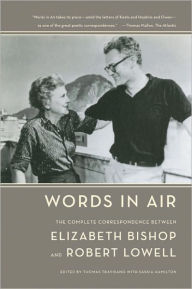 Thomas Travisano with Saskia Hamilton. Words in Air: The Complete Correspondence Between Elizabeth Bishop and Robert Lowell. 2010.
Thomas Travisano with Saskia Hamilton. Words in Air: The Complete Correspondence Between Elizabeth Bishop and Robert Lowell. 2010.
“Robert Lowell once remarked in a letter to Elizabeth Bishop that “you ha[ve] always been my favorite poet and favorite friend.” The feeling was mutual. Bishop said that conversation with Lowell left her feeling “picked up again to the proper table-land of poetry,” and she once begged him, “Please never stop writing me letters–they always manage to make me feel like my higher self (I’ve been re-reading Emerson) for several days.” Neither ever stopped writing letters, from their first meeting in 1947 when both were young, newly launched poets until Lowell’s death in 1977. The substantial, revealing–and often very funny–interchange that they produced stands as a remarkable collective achievement, notable for its sustained conversational brilliance of style, its wealth of literary history, its incisive snapshots and portraits of people and places, and its delicious literary gossip, as well as for the window it opens into the unfolding human and artistic drama of two of America’s most beloved and influential poets.”
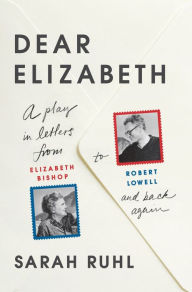 Sarah Ruhl. Dear Elizabeth: A Play in Letters from Elizabeth Bishop to Robert Lowell and Back Again. 2014.
Sarah Ruhl. Dear Elizabeth: A Play in Letters from Elizabeth Bishop to Robert Lowell and Back Again. 2014.
“From 1947 to 1977, Robert Lowell and Elizabeth Bishop exchanged more than four hundred letters. Describing the writing of their poems, their travel and daily illnesses, the pyrotechnics of their romantic relationships, and the profound affection they had for each other, these missives are the most intimate record available of both poets and one of the greatest correspondences in American literature.
The playwright Sarah Ruhl fell in love with these letters and set herself an unusual challenge: to turn this thirty-year exchange into a stage play, and to bring to life the friendship of two writers who were rarely even in the same country. As innovative as it is moving, Dear Elizabeth gives voice to a conversation that lived mostly in writing, illuminating some of the finest poems of the twentieth century and the minds that produced them.”
A Little to the Left:
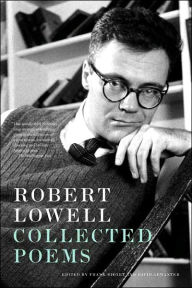 Robert Lowell. Collected Poems. 2007.
Robert Lowell. Collected Poems. 2007.
“Frank Bidart and David Gewanter have compiled the definitive edition of Robert Lowell’s work, from his first, impossible-to-find collection, Land of Unlikeness; to the early triumph of Lord Weary’s Castle, winner of the 1946 Pulitzer Prize; to the brilliant willfulness of his versions of poems by Sappho, Baudelaire, Rilke, Montale, and other masters in Imitations; to the late spontaneity of The Dolphin, winner of another Pulitzer Prize; to his last, most searching book, Day by Day. This volume also includes poems and translations never previously collected, and a selection of drafts that demonstrate the poet’s constant drive to reimagine his work. Collected Poems at last offers readers the opportunity to take in, in its entirety, one of the great careers in twentieth-century poetry.”
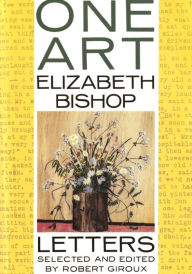 Elizabeth Bishop. One Art: Letters. 1995.
Elizabeth Bishop. One Art: Letters. 1995.
“From several thousand letters, written over fifty years – from 1928, when she was seventeen, to the day of her death, in Boston in 1979 – Robert Giroux has selected over five hundred and has written a detailed and informative introduction. One Art takes us behind Bishop’s formal sophistication and reserve, displaying to the full the gift for friendship, the striving for perfection, and the passionate, questing, rigorous spirit that made her a great poet.”
Truth Time:
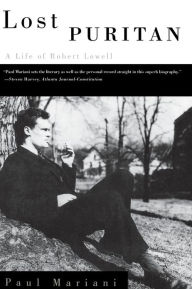 Paul Mariani. Lost Puritan: A Life of Robert Lowell. 1996.
Paul Mariani. Lost Puritan: A Life of Robert Lowell. 1996.
“Robert Lowell’s poetry radically altered the American literary landscape, combining as it did family drama and an apocalyptic view of the history of our times. He won three Pulitzer Prizes and two National Book Awards for poetry. Married three times, always to writers, he had his dark side, suffering from crippling bouts of manic depression and alcoholism.
Using hundreds of Lowell’s unpublished manuscripts and letters, and dozens of interviews, Paul Mariani has given us a balanced, passionate, and readable life, capturing the man, his age, and his place in literary history.”
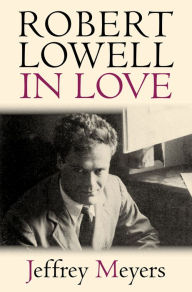 Jeffrey Meyers. Robert Lowell in Love. December 2015.
Jeffrey Meyers. Robert Lowell in Love. December 2015.
“Robert Lowell was known not only as a great poet but also as a writer whose devotion to his art came at a tremendous personal cost. In this work, his third on Robert Lowell, Jeffrey Meyers examines the poet’s impassioned, fraught relationships with the key women in his life, including his mother, Charlotte Winslow Lowell; his three wives — Jean Stafford, Elizabeth Hardwick, and Caroline Blackwood; nine of his many lovers; his close women friends — Mary McCarthy, Elizabeth Bishop, and Adrienne Rich; and his most talented students, Anne Sexton and Sylvia Plath.
Lowell’s charismatic personality and compelling poetry attracted lovers and friends who were both frightened and excited by his aura of brilliance and danger. He loved the idea of falling in love, and in his recurring manic episodes he needed women at the center of his emotional and artistic life. While he idealized his loves and encouraged their talents, he never fully grasped his wives’ and lovers’ deepest needs and feelings, and his frenetic affairs and tortured marriages were always conducted entirely on his own terms. Robert Lowell in Love tells the story of the poet in the grip of love and gives voice to the women who loved him, inspired his poetry, and suffered along with him.”
If you’re a fan of letter compilations, keep an eye on the blog later this week – we’ll be posting a reading list dedicated to shared correspondence and epistolary novels. Additionally, browse our selection of titles on display in the New Book Room.


